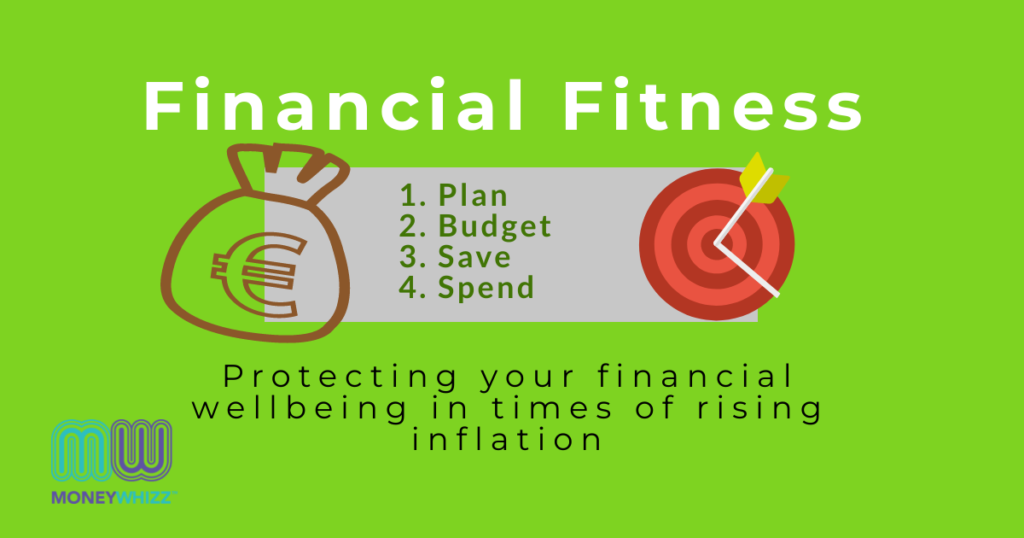Inflation has taken off with a vengeance over the last 12 months. This has resulted in rising prices for food, fuel and much more!
No matter your financial situation, inflation will impact you. According to the latest MoneyWhizz poll, a high percentage of those in their 30’s and 40’s say they feel financially vulnerable to even small changes in their financial situation. For those in retirement, inflation erodes the value of their fixed incomes.
How is inflation determined?
There are two things to remember about inflation. First, how it is measured and second, how it is controlled.
Inflation is measured in Ireland by tracking the cost of a ‘basket’ of goods and services. This includes items such as food, clothing, transport, alcohol and much more. Prices are tracked and reported monthly.
More importantly, how inflation is controlled is no longer a matter for the Irish authorities as this has been taken over by the European Central Bank since the launch of the Euro. Here, interest rates are used as the primary tool to limit and control inflation. The ECB uses a ‘target’ rate of inflation of 2% which means that as inflation rises, it would typically increase interest rates. The ECB has signaled it will increase interest rates in July.
Since no one can precisely predict when inflation will ease off (or fall), there are several practices you should consider (if you haven’t already) to become more financially resilient.
1. Borrowing isn’t a bad thing
Rising inflation means that not everyone will be able to save for the things they want in life. Taking on certain borrowings can have advantages. For example, buying a home with the support of a mortgage provides for security of tenure. A car loan offer borrowers access to employment and income where public transport options are limited.
2. Plan early and often
Financial planning is an ongoing process that allows you to make the most of your financial capabilities. It can be invaluable in assisting you manage your current financial needs and also, to prepare for your long-term goals, like retirement. A financial planner can help you build a detailed financial plan based on your individual circumstances.
If you already have a financial plan, review it annually. Right now, inflation will impact some aspects of your financial plan so you may need to make some adjustments.
3. Automate your savings
Saving money is vital as it provides financial resilience in times of an emergency.
To stick to a savings schedule, try to stay consistent on how much you put away each month. Once you determine how much and how often you want to contribute to your savings goals, you can arrange an automatic transfer and your savings begin to accumulate without lifting a finger. You can read more HERE.
4. Smart spending
It’s no secret, the cost of living is increasing. Whether you’re a family of four or a single person, you’re likely feeling that inflation pinch.
Create a budget and keep track of your spending. A budget can let you see your spending habits and help you find ways to save. You can use the MoneyWhizz Budgeting Buddy as a useful guide to make your finances visible.
As you populate the Budgeting Buddy, remember that in addition to recording the information, question it too! For example, are you entitled to any tax refunds from Revenue? When it comes to your mortgage and other costs, can you refinance to a better rate? Can you get a better deal on your home energy costs…or on your various protection policies? Remember, any savings will put a little more money back in your pocket and today, every euro matters!
While there may be lots of financial uncertainty today, you can continue to build your financial resilience by creating and sticking to a budget, continually revisiting your financial plan, putting more in savings and choosing smart investments.
Frank Conway is a Qualified Financial Adviser.


Comments are closed.